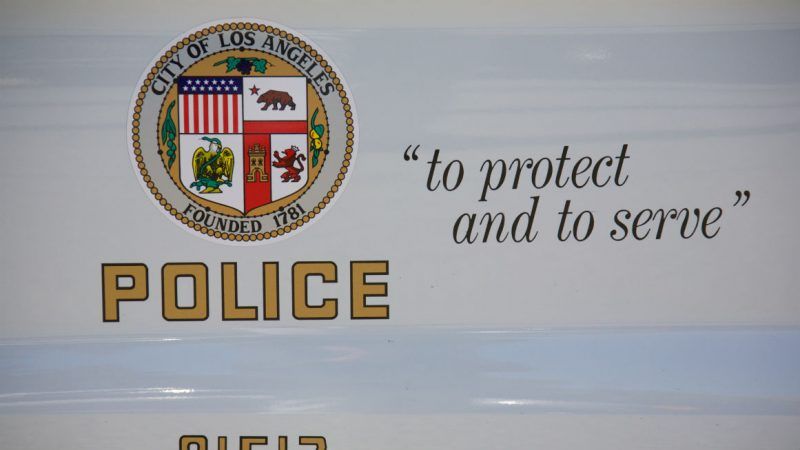LAPD Chief Says Its Gang Database Abuse Scandal Now Has 'Criminal Aspects'
At least 20 officers have been suspended while the LAPD investigates the placement of innocent motorists on the gang database.

The investigation into the Los Angeles Police Department's (LAPD) gang database scandal has turned into a criminal probe.
As Reason previously reported, over a dozen officers assigned to Metropolitan Division crime suppression made the conscious choice to identify innocent civilians as gang members during traffic stops. The false information provided on the field interview cards not only artificially boosted the division's appearance of success, but it placed innocents on California's gang database.
LAPD officials first learned about the misconduct when a mother was informed that her son was placed on the database, according to the police department's own statement. After reporting the mistake, an investigation uncovered discrepancies between the information provided on field interview cards and other kinds of evidence, such as body cameras.
Chief Michel Moore publicly confirmed on Tuesday that at least 20 officers have either been assigned to inactive duty or removed from the field because of the investigation. Moore also said that the ongoing investigation now involves the district attorney's office "because there are criminal aspects of this."
In the meantime, the department will require a lieutenant in charge of the gang unit to review the body camera footage to catch any inconsistencies between the field interview cards, reports the Los Angeles Times.
It's not unheard of for innocents to be placed in California's gang database. Reason's Scott Shackford has reported on the database's numerous errors, not to mention privacy and civil rights concerns. In 2019, NBC News interviewed a black man named Larry Sanders who was placed on the database because he was "associating with documented gang members" and "frequenting gang areas." (Sanders works as a gang interventionist in Green Meadows Park, located in South Los Angeles.)
Such misconduct leaves room for abuse of minorities like Sanders. Prior to the scandal, the Times reported that black Californians make up nearly half of the drivers stopped by the division, despite being 9 percent of the city's population. Because of the racial disparity and low arrest rate in those stops, the LAPD has since announced its intentions to scale back random stops.
